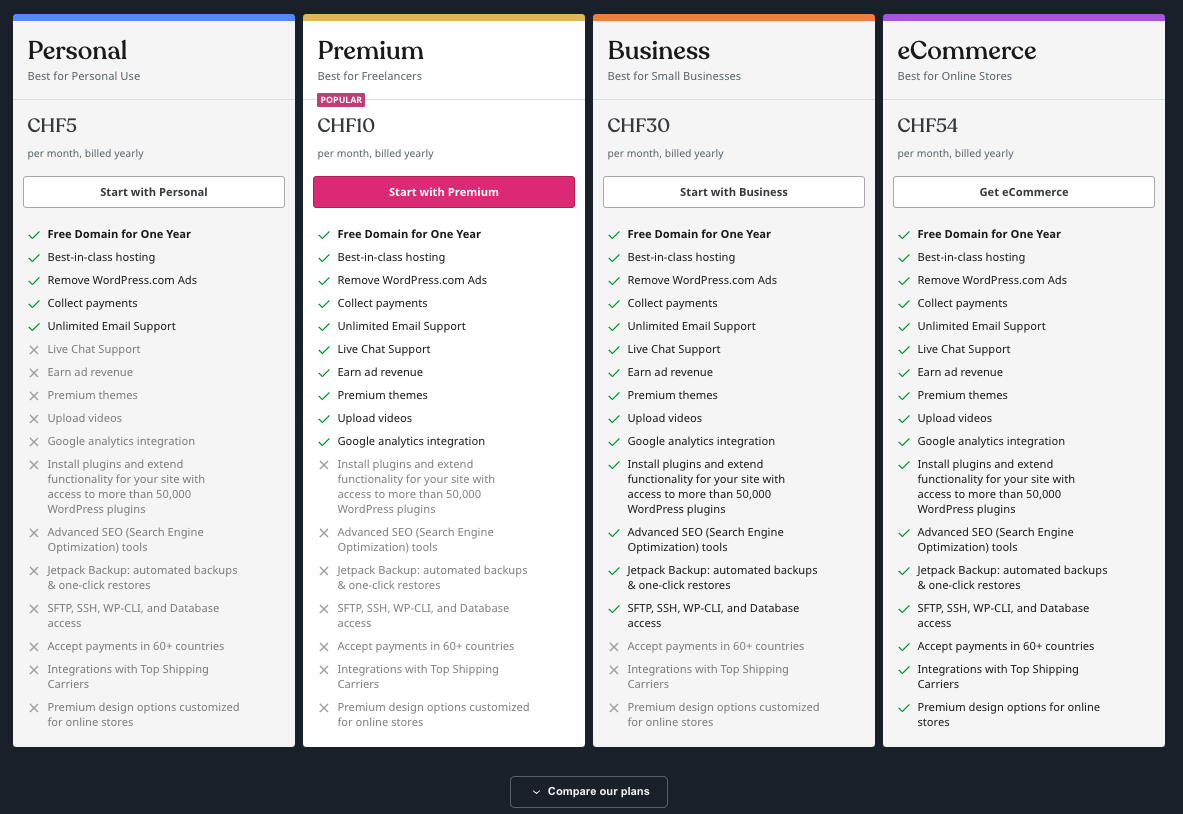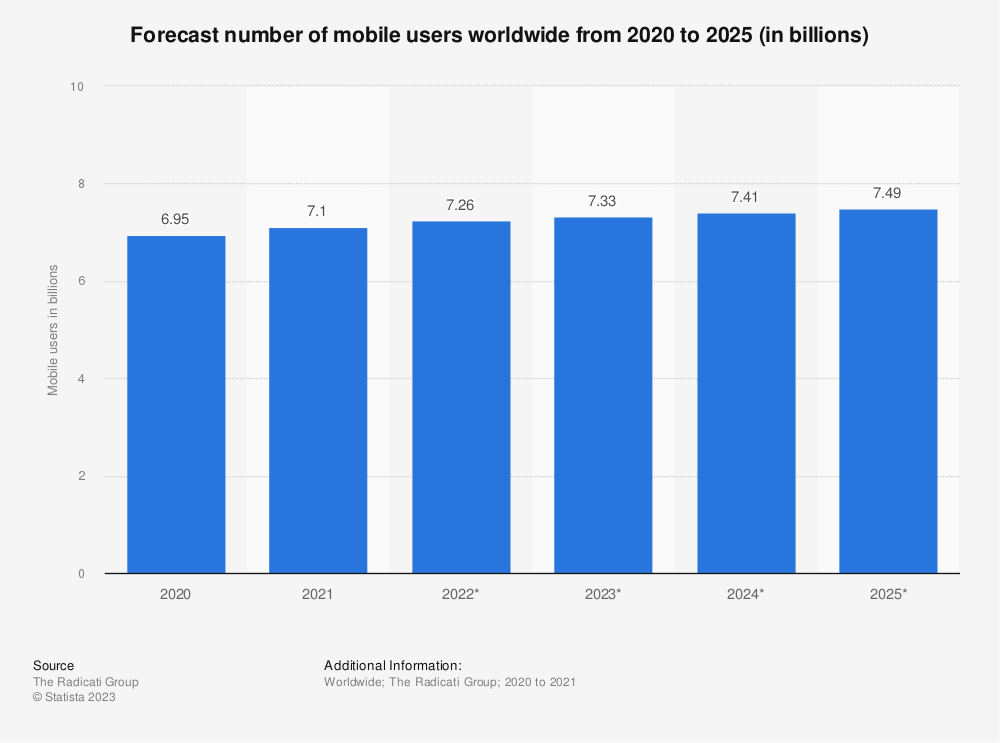
The Future of Web Content Management: Trends and Predictions for 2024
Last update: 5 January 2024 at 11:53 am
The field of web content management is continually advancing and staying up-to-date is crucial for businesses and organisations to maintain their competitive edge.
This article will explore the latest trends and predictions for the future of web content management and how they will shape the way we create, manage and deliver online content.
|
Discover the most relevant agencies for your project based on your own specific requirements.
Find an agency!Here are 8 Trends to Keep an Eye on in the Future of Web Content Management:
From the integration of Artificial Intelligence and natural language processing to the growing popularity of influencer marketing and the need for voice search optimisation, these trends are set to greatly influence the way we create and distribute content on the web.
“AI: The Future of Content Management”
The incorporation of artificial intelligence (AI) and machine learning in web content management is a notable trend. According to a survey by the Content Marketing Institute, 55% of B2B marketers are already utilising AI to aid in content creation and distribution.
Furthermore, a report by MarketsandMarkets predicts that the global AI in content management market will grow from $1.4 billion in 2020 to $4.4 billion by 2025, at a CAGR of 24.8%.
These technologies have the potential to revolutionise the way we manage and create content, making it more efficient for businesses and organisations to produce and deliver high-quality content.
“The Power of Natural Language Processing (NLP) in Content Management”
One example of this is the use of natural language processing (NLP), which allows machines to understand and respond to human language.
This can be used to create chatbots that can answer customer questions and provide helpful information or analyse and summarise large amounts of data to identify key insights.
According to a report by Grand View Research, the global NLP market is expected to reach $16.07 billion by 2025, growing at a CAGR of 24.2%.
“Personalisation and Customisation: A Growing Trend in Web Content Management”
Another trend in web content management is the increased use of personalisation and customisation. As consumers become more accustomed to tailored and personalised experiences online, businesses and organisations will need to find ways to deliver tailored content to the individual user.
This could include using data and analytics to create personalised content recommendations. Or using machine learning to automatically personalise the layout and design of a website based on the user’s browsing history.
A study by Epsilon found that personalised emails had 29% higher unique open rates and 41% higher click-through rates than non-personalised emails.
“Personalised emails had 29% higher unique open rates and 41% higher click-through rates than non-personalised emails.“
Epsilon
“Virtual Reality and Augmented Reality: The Future of Web Content”
Another trend that is likely to continue in the future of web content management is the use of virtual and augmented reality. According to a report by MarketsandMarkets, the global VR and AR market is expected to reach $209.2 billion by 2022, growing at a CAGR of 61.9%.
As technology continues to improve, more businesses and organisations will likely incorporate VR and AR into their content strategies. This could include creating virtual tours of products or services or using AR to provide users with an interactive and immersive experience.
“Blockchain Technology: Revolutionising Content Management”
Blockchain technology is another trend that is likely to become more prevalent in the future of web content management.
According to a report by ResearchAndMarkets, the global blockchain market is expected to reach $23.3 billion by 2024, growing at a CAGR of 67.3%.
Blockchain is a decentralised and secure way of storing and sharing data, and it can revolutionise how we manage and share content online.
This could include creating decentralised content networks or using blockchain to create a more secure and transparent way of tracking and verifying content.
“The Mobile Revolution: Optimising Content for Mobile Devices”
Additionally, the continued rise of mobile devices will likely heavily influence the future of web content management.
A report by Statista predicts that by 2024, there will be 7.33 billion mobile phone users worldwide. As more and more people use smartphones and tablets to access the internet, businesses and organisations will need to find ways to optimise their content for mobile devices.
This could include creating mobile-responsive websites or developing mobile apps that allow users to access content offline.
“The Emergence of Influencer Marketing in Content Management”
Influencer marketing is becoming an increasingly popular trend in managing web content. Influencer marketing refers to the process of using social media influencers to promote a brand or product.
Business Insider predicted that influencer marketing will grow into a $10 billion industry by 2020. Businesses and organisations are turning to influencers to create authentic and engaging content that resonates with their target audience.
Experts predict that influencer marketing will continue to drive brand awareness, website traffic, and sales as it proves to be an effective strategy.
“The Importance of Voice Search Optimisation”
Lastly, voice search is becoming an increasingly important trend in web content management. With the rise of virtual assistants such as Alexa and Google Home, more and more people are turning to voice search to find information online.
According to a report by Google, 55% of teens and 41% of adults use voice search on a daily basis. As a result, businesses and organisations will need to optimise their content for voice search to ensure their content is easily discoverable.
This can include incorporating long-tail keywords, creating natural language content, and optimising for featured snippets.
Web Content Management Systems:
To effectively create, manage, and deliver content online, businesses and organisations need to have the right tools in place. From having a managed VPS hosting to a dedicated CMS.
One of the most important tools for this is a web content management system (WCMS). A WCMS is a software application that allows users to create, manage, and publish content on web pages without the need for web programming.
Thus, there are many different types of WCMS available, each with its own unique features and capabilities. Some popular online processing systems include WordPress, Drupal, and Joomla. Among the offline processing systems are Bricolage and Vignette.

These systems allow multiple users to easily create and manage content, as well as add and customise design elements. They also provide tools for search engine optimisation (SEO), analytics, and security.
One of the most important things to consider when selecting a WCMS is how well it aligns with your organisation’s goals and objectives.
Different CMS platforms cater to the needs of small businesses and large enterprise organisations respectively. It’s also important to consider scalability, security, and ease of use when selecting a CMS platform.
Further, as the world of web content management evolves, new WCMS likely emerge that better suit the latest trends and technologies.
Businesses and organisations will need to stay up-to-date with these developments and consider how they can use them to improve their content management strategies.
To Recap
To conclude, several trends, including the increased use of artificial intelligence and machine learning. Personalisation and customisation, the adoption of virtual and augmented reality, and the rise of mobile devices, will shape the future of web content management.
As technology continues to evolve, businesses and organisations must stay ahead of the curve to remain competitive and relevant in the digital landscape.
FAQs
A Web Content Management System (CMS) is a software application that enables users to create, edit, organise, and manage digital content on a website without requiring advanced technical skills. It provides a user-friendly interface for content creation and modification, making it easier for individuals or teams to maintain an online presence.
One popular example of a CMS is WordPress. Other widely used CMS platforms include Joomla, Drupal, and Wix. These systems offer various features and customisation options to cater to different needs and preferences.
The primary role of a CMS in a website is to streamline the process of content creation, modification, and management. It allows users to update website content efficiently, ensuring that information is current and relevant. CMS also facilitates collaboration among multiple users, making it easier for teams to work on a website simultaneously.







